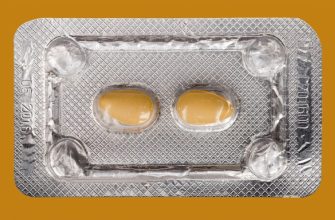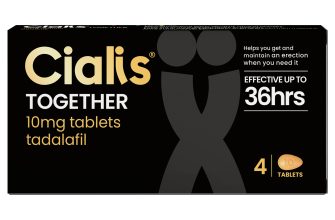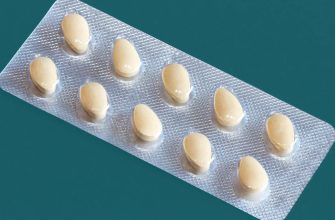If you’re concerned about how Cialis might affect your liver, prioritize open communication with your doctor. Regular liver function tests are key to monitoring any potential issues. This proactive approach allows for early detection and management of any complications.
Cialis, like many medications, can impact liver enzymes in some individuals. While generally considered safe for most, pre-existing liver conditions or high-risk factors necessitate careful consideration. Your physician can assess your specific risk profile and determine the suitability of Cialis based on your medical history and current health status.
Specific concerns regarding liver damage linked to Cialis are rare, but reports exist. These cases often involve pre-existing liver disease or high doses of Cialis. Always adhere to your prescribed dosage and inform your doctor about all medications and supplements you’re taking, including herbal remedies, to prevent potential drug interactions.
Remember: This information is not a substitute for professional medical advice. Consulting a healthcare professional is paramount before starting or altering any medication regimen, especially if you have liver problems or are considering using Cialis.
- Cialis and Liver Problems: A Detailed Look
- Understanding the Liver’s Role
- Potential Liver-Related Side Effects
- Recommendations for Safe Use
- Specific Circumstances
- How Cialis is Metabolized by the Liver
- Factors Affecting Metabolism
- Metabolic Pathways
- Consequences of Impaired Metabolism
- Cialis and Liver Enzyme Levels: What to Expect
- Pre-existing Liver Conditions and Cialis Use
- Specific Liver Conditions and Cialis
- Cialis Dosage Adjustments for Liver Impairment
- Specific Dosage Recommendations
- Factors Influencing Dosage
- Recognizing Liver-Related Side Effects of Cialis
- Symptoms to Watch For
- Understanding Liver Enzyme Levels
- When to Seek Medical Help
- Additional Considerations
- Cialis and Alcohol: The Impact on the Liver
- Understanding the Risks
- Recommendations for Safe Use
- Interactions Between Cialis and Other Liver-Affecting Medications
- When to Consult a Doctor About Cialis and Liver Health
- Specific Reasons to Seek Medical Advice
- When to Contact Your Doctor Regarding Dosage
Cialis and Liver Problems: A Detailed Look
Cialis, like other medications, can affect the liver. The severity varies greatly depending on factors like the individual’s liver health, dosage, and the presence of other medical conditions. Consult your doctor before starting Cialis if you have pre-existing liver disease.
Understanding the Liver’s Role
Your liver processes medications, including Cialis. It metabolizes the drug, breaking it down into substances your body can eliminate. Liver damage can impair this process, leading to a buildup of Cialis in your system, potentially increasing the risk of side effects. Conversely, severe liver problems could be worsened by Cialis use.
Potential Liver-Related Side Effects
While rare, some users report elevated liver enzymes–indicators of potential liver damage–while taking Cialis. Symptoms such as jaundice (yellowing of the skin or eyes), dark urine, or abdominal pain warrant immediate medical attention. These aren’t necessarily caused directly by Cialis, but need prompt evaluation.
Recommendations for Safe Use
Regular liver function tests are recommended for individuals with pre-existing liver conditions who are prescribed Cialis. This allows for monitoring of liver health during treatment. Open communication with your doctor about your medical history, including any liver issues, is absolutely necessary before starting Cialis. Your doctor will consider your individual risk factors and determine the appropriate course of action.
Specific Circumstances
Individuals with severe liver disease should exercise extreme caution and possibly avoid Cialis altogether. Dosage adjustments may be required for people with moderate liver impairment. Your physician will guide you based on your specific health situation. Always inform your doctor of all medications you’re taking, including over-the-counter drugs and supplements, as interactions can affect liver health.
How Cialis is Metabolized by the Liver
Cialis (tadalafil) undergoes significant hepatic metabolism. The liver primarily uses the cytochrome P450 enzyme system, specifically CYP3A4, to break down tadalafil. This process transforms the active drug into inactive metabolites, which are then excreted from the body, mainly through the feces.
Factors Affecting Metabolism
- Liver Function: Impaired liver function can significantly slow the metabolism of Cialis, leading to higher and potentially dangerous blood concentrations of the drug. Regular liver function tests are recommended for individuals with pre-existing liver conditions before and during Cialis use.
- Concomitant Medications: Drugs that inhibit or induce CYP3A4 can affect Cialis metabolism. Grapefruit juice, for example, is a known CYP3A4 inhibitor and should be avoided. Always consult your doctor or pharmacist about potential drug interactions before starting Cialis.
- Age and Genetics: Age-related changes in liver function and individual genetic variations can influence Cialis metabolism. Your doctor will consider these factors when prescribing.
Metabolic Pathways
- Tadalafil is primarily metabolized by CYP3A4.
- CYP3A4 converts tadalafil into inactive metabolites.
- These metabolites are excreted primarily through the feces.
- A small amount is excreted through urine.
Understanding how Cialis is metabolized is crucial for safe and effective use. Always inform your doctor about any pre-existing liver conditions or medications you are taking to prevent adverse effects.
Consequences of Impaired Metabolism
Slowed metabolism, due to liver problems or drug interactions, can result in increased tadalafil blood levels, potentially increasing the risk of side effects such as headache, flushing, muscle aches, back pain, and vision changes. In rare cases, more serious side effects are possible.
Cialis and Liver Enzyme Levels: What to Expect
Regular liver enzyme tests are a good idea if you’re taking Cialis, especially if you have pre-existing liver conditions. These tests measure the levels of enzymes like ALT and AST in your blood. Elevated levels can indicate liver damage.
Before starting Cialis, your doctor should conduct a baseline liver function test. This provides a comparison point for future checks.
Expect potential, albeit usually minor, fluctuations in liver enzyme levels. Most men taking Cialis experience no significant changes. However, some individuals might see a slight increase. This is generally temporary and resolves once you stop taking the medication.
Significant increases in liver enzyme levels are rare, but warrant immediate medical attention. Symptoms to watch for include jaundice (yellowing of skin or eyes), dark urine, and abdominal pain. These may signal a more serious liver-related issue requiring prompt medical evaluation.
Your doctor will determine the frequency of liver enzyme tests based on your individual health profile and any risk factors. Regular monitoring ensures early detection of any potential problems.
Open communication with your physician is key. Report any unusual symptoms or concerns, regardless of how minor they may seem. This proactive approach ensures the safest and most effective use of Cialis.
Pre-existing Liver Conditions and Cialis Use
Individuals with pre-existing liver conditions should discuss Cialis use with their doctor before starting treatment. This is particularly important for those with moderate to severe liver impairment. Cialis is primarily metabolized by the liver, so reduced liver function can lead to increased drug levels in the blood, potentially increasing the risk of side effects.
Specific Liver Conditions and Cialis
Cirrhosis, hepatitis, and other liver diseases significantly affect how the body processes medications. The severity of the liver condition directly impacts the recommended dosage, if any. Your physician will assess your specific condition and determine whether Cialis is safe for you and, if so, prescribe the appropriate dose or suggest an alternative.
Regular liver function tests are recommended during Cialis treatment, especially if you have a pre-existing liver condition. These tests help monitor how well your liver is processing the medication and identify any potential problems early. Open communication with your doctor is key for safe and effective management.
Cialis Dosage Adjustments for Liver Impairment
Individuals with moderate or severe liver impairment should generally use a lower dose of Cialis. Start with 5mg once daily. Your doctor will monitor your response and adjust the dosage as needed.
Specific Dosage Recommendations
- Mild liver impairment: Dosage adjustment may not be necessary, but close monitoring is recommended.
- Moderate liver impairment: A starting dose of 5mg once daily is usually advised. Higher doses should be approached with caution and under strict medical supervision.
- Severe liver impairment: Cialis is generally not recommended. Alternative treatments should be considered in consultation with your physician.
Remember, these are general guidelines. Your doctor will determine the appropriate dosage based on your individual health status, other medications you are taking, and the severity of your liver condition.
Factors Influencing Dosage
- Severity of liver disease: The more severe the liver impairment, the lower the recommended dose.
- Other medications: Interactions with other drugs can affect Cialis metabolism and necessitate dosage adjustment.
- Individual response: The optimal dose can vary significantly from person to person.
Always discuss any changes to your medication regimen with your doctor. Regular monitoring of your liver function is crucial while taking Cialis, especially with pre-existing liver conditions. Never alter your prescribed dosage without consulting your healthcare provider.
Recognizing Liver-Related Side Effects of Cialis
Cialis, while generally safe, can sometimes affect your liver. Pay close attention to changes in your body. Jaundice, a yellowing of your skin and eyes, is a significant warning sign and requires immediate medical attention. This indicates a potential liver problem and needs prompt evaluation.
Symptoms to Watch For
Beyond jaundice, watch for other symptoms like dark urine, light-colored stools, persistent fatigue, unexplained abdominal pain, or nausea and vomiting. These could indicate liver inflammation or damage. Even mild symptoms warrant a doctor’s visit, especially if you’re already taking Cialis.
Understanding Liver Enzyme Levels
Your doctor may order blood tests to check your liver enzyme levels (ALT and AST). Elevated levels suggest potential liver damage. These tests help determine the severity of any liver-related issues. Regular monitoring is helpful if you’re concerned.
When to Seek Medical Help
| Symptom | Action |
|---|---|
| Jaundice (yellowing of skin/eyes) | Seek immediate medical attention. |
| Dark urine, light stools, persistent fatigue | Consult your doctor immediately. |
| Unexplained abdominal pain, nausea, vomiting | Schedule a doctor’s appointment. |
| Elevated liver enzyme levels (ALT/AST) | Follow your doctor’s recommendations. |
Additional Considerations
Always inform your doctor about all medications you take, including over-the-counter drugs and supplements. This complete picture allows for better diagnosis and treatment. Open communication with your healthcare provider is crucial for managing your health.
Cialis and Alcohol: The Impact on the Liver
Combining Cialis and alcohol increases the risk of liver damage. Alcohol is metabolized by the liver, and Cialis, while not directly harming the liver in moderate doses, can strain its function. This means that excessive alcohol consumption while taking Cialis puts added stress on the liver, potentially leading to liver enzyme elevation and, in severe cases, more serious liver problems.
Understanding the Risks
The severity depends on several factors including the amount of alcohol consumed, the dosage of Cialis, pre-existing liver conditions, and individual factors like age and overall health. Regular heavy alcohol use poses a significantly greater threat when combined with Cialis compared to occasional light drinking. Even moderate alcohol intake consistently while on Cialis may have cumulative negative effects on liver health over time.
Recommendations for Safe Use
To minimize liver stress, limit alcohol consumption while taking Cialis. Consult your doctor for personalized advice regarding safe alcohol limits based on your individual health profile and Cialis prescription. Open communication with your physician is vital for managing potential risks associated with combining medication and alcohol. Regular liver function tests might be recommended, particularly if you have a history of liver problems or consume alcohol frequently.
Interactions Between Cialis and Other Liver-Affecting Medications
Always inform your doctor about all medications you’re taking, including over-the-counter drugs and supplements, before starting Cialis. This is particularly crucial if you use medications that can affect your liver.
Certain medications metabolized by the liver can interact negatively with Cialis, potentially increasing the risk of side effects. These interactions can lead to higher concentrations of Cialis in your blood, increasing the likelihood of adverse reactions.
| Medication Class | Example Medications | Potential Interaction |
|---|---|---|
| Azole antifungals | Ketoconazole, Itraconazole | Increased Cialis blood levels, potentially leading to intensified side effects. |
| Macrolide antibiotics | Erythromycin, Clarithromycin | Similar to azoles, these can increase Cialis levels. |
| HIV protease inhibitors | Ritonavir, Indinavir | Significant risk of increased Cialis concentration; careful monitoring is necessary. |
| Grapefruit juice | Grapefruit juice | Contains compounds that inhibit liver enzymes, resulting in elevated Cialis levels. Avoid consumption. |
The severity of these interactions varies depending on several factors, including the specific medications involved, the dosage, and your individual liver function. Your doctor can assess your risk and adjust your medication accordingly.
If you experience any unusual symptoms while taking Cialis, such as chest pain, prolonged erection, sudden vision loss, or hearing loss, seek immediate medical attention. Open communication with your healthcare provider is key to ensuring your safety and managing potential drug interactions effectively.
When to Consult a Doctor About Cialis and Liver Health
Schedule an appointment with your doctor immediately if you experience jaundice (yellowing of the skin or eyes), dark urine, light-colored stools, unusual fatigue, or persistent nausea or vomiting while taking Cialis.
Specific Reasons to Seek Medical Advice
- You have pre-existing liver disease or a history of liver problems. Discuss Cialis use with your doctor before starting.
- You are taking other medications, particularly those metabolized by the liver. Potential drug interactions can affect liver function.
- You notice any changes in your liver function tests (LFTs) after starting Cialis. Your doctor will monitor your LFTs if they are concerned.
- You experience unexplained abdominal pain or discomfort, especially in the upper right quadrant, where your liver is located.
- You develop any signs of liver inflammation (hepatitis), such as fever, muscle aches, or loss of appetite.
When to Contact Your Doctor Regarding Dosage
- If you suspect you’re experiencing side effects related to your current Cialis dosage.
- If you have questions about the correct dosage for your individual needs.
- If your health condition changes and you need to adjust your medication regimen.
Remember, open communication with your doctor is key to ensuring your safety and well-being while using Cialis. Don’t hesitate to reach out with any concerns.







